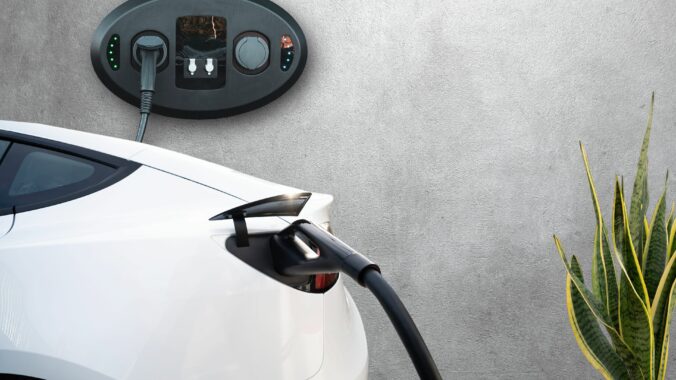Refrigerators and dishwashers have been standard in homes for decades. But with the rise in digitization and electrification, plus incentives laid out by the recent Inflation Reduction Act, a new innovation is coming to more and more homes — electric cars. How much electricity does an EV charger use? And how will this affect your bill?
In general, a Level 2 EV charger uses about 7,200 watts when charged at home, but that number varies depending on the mode and type of home charger you have. There are three levels of EV chargers — 1, 2, and 3. Most vehicles use a Level 2 for daily charging. The higher the level, the faster the charging process, and the more power it uses. The type of vehicle you purchase determines how much power it can accept.
Additionally, how much you drive your EV plays a role into how much electricity it uses to charge. According to EnergySage, the average American drives 14,000 miles per year. An EV consumes about 0.35 kWh per mile driven. If you do the math, that equals about 406.5 kWh per month. Based on the U.S. average electricity rate, this can run consumers about $58 per month, or $695 per year to charge an EV, but varies based on your state’s electricity rate.
Compare a $58 monthly fill-up to a typical gas-powered vehicle, and you see why so many people are switching to EVs based on fuel prices. Overall, fueling EVs costs about one-third of the price of fueling gas-powered cars, on a mile-for-mile basis. The 14,000 miles driven per year on average, when divided by a 25.4 mpg national average fuel economy, gives you the average annual amount of gallons of gas consumed per driver: 551. Multiply that by the national average gas costs $3.42 (as of January 2022) and you get a total monthly fuel cost of $157.09. But if you drive an old truck in a state like California where gas is pricy, and that monthly cost could be much higher.
Although electric cars are less expensive to operate than gas-powered vehicles, there are other factors to consider. According to the U.S. Energy Information Administration, the average American uses 886 kWh per month, so an EV charger will potentially increase your home’s existing energy use by 50% and thus may require an upgraded electrical service. An EV frequently saves you money in the long run, but it’s important to note the upfront costs and increased home energy usage before taking the plunge.
Pro tip: If you live in an area with a TOU rate, charging your EV overnight during off-peak hours can help save money.
